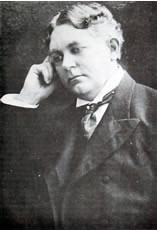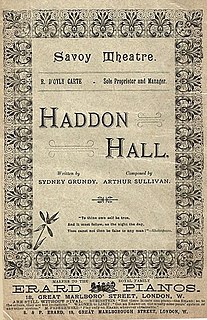
Anne of the Thousand Days is a 1969 British period drama film based on the life of Anne Boleyn, directed by Charles Jarrott and produced by Hal B. Wallis. The screenplay by Bridget Boland and John Hale is an adaptation of the 1948 play of the same name by Maxwell Anderson.

Lady Jane is a 1986 British costume-drama romance film, directed by Trevor Nunn, written by David Edgar, and starring Helena Bonham Carter as the title character. It tells the story of Lady Jane Grey, her marriage to Lord Guildford Dudley, and her reign as the "Nine Days' Queen" following the death of Edward VI of England.

Mary, Queen of Scots is a 1971 biographical film based on the life of Mary Stuart, Queen of Scotland, written by John Hale and directed by Charles Jarrott. The cast was led by Vanessa Redgrave as the title character and Glenda Jackson as Elizabeth I. Jackson had previously played the part of Elizabeth in the BBC TV drama Elizabeth R, screened in February and March 1971, the first episode of which was also written by Hale.

Haddon Hall is an English country house on the River Wye near Bakewell, Derbyshire, a former seat of the Dukes of Rutland. It is the home of Lord Edward Manners and his family. In form a medieval manor house, it has been described as "the most complete and most interesting house of [its] period". The origins of the hall are from the 11th century, with additions at various stages between the 13th and the 17th centuries, latterly in the Tudor style.

Thomas Manners, 1st Earl of Rutland, 12th Baron de Ros of Helmsley, KG, of Belvoir Castle, Rutland, was created Earl of Rutland by King Henry VIII in 1525.

Charles Major was an American lawyer and novelist.

Dorothy Vernon of Haddon Hall is a 1902 historical novel written by Charles Major. Following the life and romances of Dorothy Vernon in Elizabethan England, the novel became the year's third most successful novel according to The Bookman annual list of bestselling novels. The novel was Charles Major's third, and his second bestseller, following When Knighthood Was in Flower.

Haddon Hall is an English light opera with music by Arthur Sullivan and a libretto by Sydney Grundy. The opera, set at the eponymous hall, dramatises the legend of Dorothy Vernon's elopement with John Manners, resetting the tale in the 17th century.

Sir John Fortescue of Salden Manor, near Mursley, Buckinghamshire, was the seventh Chancellor of the Exchequer of England, serving from 1589 until 1603.

Kiki is a 1931 American Pre-Code romantic comedy, starring Mary Pickford and Reginald Denny, which was directed by Sam Taylor. It was based upon the David Belasco play of the same name. The film is a remake of the 1926 version starring Norma Talmadge.

Amarilly of Clothes-Line Alley is a 1918 American silent romantic comedy film starring Mary Pickford that was directed by Marshall Neilan and written by Frances Marion based upon a novel by Belle K. Maniates.

Little Annie Rooney is a 1925 American silent comedy-drama film starring Mary Pickford and directed by William Beaudine. Pickford, one of the most successful actresses of the silent era, was best known throughout her career for her iconic portrayals of penniless young girls. After generating only modest box office revenue playing adults in her previous two films, Pickford wrote and produced Little Annie Rooney to cater to silent film audiences. Though she was 33 years old, Pickford played the title role, an Irish girl living in the slums of New York City.

Stella Maris is a 1918 American silent drama film directed by Marshall Neilan, written by Frances Marion and based on William John Locke's 1913 novel of the same name. The film stars Mary Pickford in dual roles as the title character and an orphan servant.

Madame Butterfly is a 1915 silent film directed by Sidney Olcott. The film is based on the 1898 short story "Madame Butterfly" by John Luther Long and the opera Madama Butterfly.

Rosita is a 1923 American silent historical comedy drama film directed by Ernst Lubitsch and starring Mary Pickford. The film is based upon an 1872 opera Don César de Bazan of Adolphe d'Ennery and Philippe Dumanoir.
The Vernon family was a wealthy, prolific and widespread English family with 11th-century origins in Vernon, Normandy, France. Their extant titles include Baron Vernon and Vernon baronets of Shotwick Park.

George Vernon was and a prosperous and hospitable landowner and MP in Derbyshire, who came from a long line of wealthy landowners. He was the son of Richard Vernon and Margaret Dymoke. His family seat was at Haddon Hall, England's best preserved medieval manor house and today a major tourist attraction. He was a Member (MP) of the Parliament of England for Derbyshire in 1542.

Dorothy Vernon, the younger daughter of Sir George Vernon and Margaret nee Talbois, was the heiress of Haddon Hall, an English country house in Derbyshire with its origins in the 12th century. She married John Manners in 1563. The couple's descendants, the Dukes of Rutland, continue to own Haddon Hall. A legend grew up in the 19th century that Vernon and Manners eloped, and a number of novels, dramatisations and other works of fiction have been based on the legend.

Eleanor Manners, Countess of Rutland, was lady-in-waiting to four wives of King Henry VIII of England: Anne Boleyn, Jane Seymour, Anne of Cleves and Catherine Howard.

Sir George Manners (1569-1623) of Haddon Hall in Derbyshire, England, served as a Member of Parliament for Nottingham, 1588–1589, and for Derbyshire, 1593–1596. His elaborate triple-decked monument with kneeling effigies of himself and his wife and family survives in the Vernon/Haddon Chapel, All Saints Church, Bakewell, Derbyshire.




















